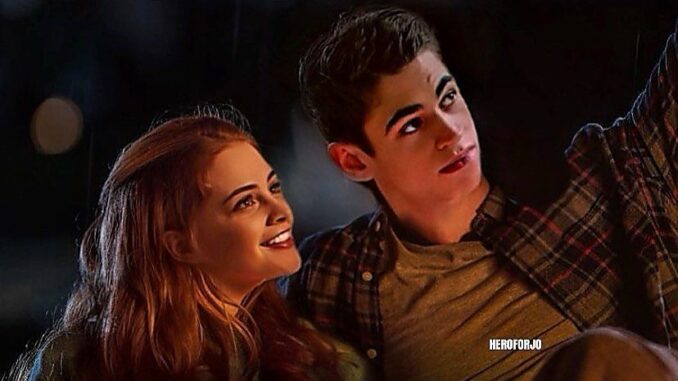
When After first emerged online as a piece of One Direction fan fiction, few could have predicted it would one day spark a multimillion-dollar film franchise. Written by Anna Todd and initially published on Wattpad, the story quickly gained a massive following, ultimately evolving into a series of bestselling novels. Now, After has made the leap to the big screen, but the transition hasn’t come without controversy—especially among the very fans who fueled its rise.
The film adaptation, starring Josephine Langford as Tessa Young and Hero Fiennes Tiffin as Hardin Scott, reframes the central love story originally inspired by One Direction’s Harry Styles. While the published version of the novel stripped away direct references to the boy band, the story’s roots in fandom culture remain undeniable. For some longtime readers, seeing their once-niche obsession transformed into a mainstream romance drama is a dream come true. For others, however, it feels like a betrayal of what made the story special in the first place.
Social media platforms have been flooded with mixed reactions since the film’s release. Some fans celebrate the global recognition and the opportunity to see characters they love brought to life. “I can’t believe the story I read in high school is now on the big screen,” one fan tweeted. Yet critics—many of them former or current One Direction stans—argue that the adaptation erases too much of the story’s original identity while also glamorizing what they see as a toxic relationship dynamic.
The debate echoes a broader conversation about how fandom content is adapted for mainstream audiences. Fan fiction, once relegated to online communities, has increasingly become a source of material for publishers and film studios. After is one of the most prominent examples, proving that grassroots fan creativity can lead to global success. But the backlash also highlights the risks of commercialization, especially when the source material is tied to passionate fan bases.
For author Anna Todd, the adaptation represents both a milestone and a delicate balancing act. She has spoken openly about wanting to stay true to the characters while also making the story accessible to new audiences unfamiliar with its origins. “It was always about telling a love story that resonates,” Todd has said. Still, she acknowledges the complexity of adapting a work that began as fan fiction tied to real celebrities.
Industry observers note that whether fans embrace or reject it, the After movie has undeniably expanded the franchise’s reach. Distributed internationally, the film has performed well with younger audiences and sparked multiple sequels, cementing After as a lasting presence in the romance genre.
Yet the mixed response underscores an important point: fan communities don’t always align with Hollywood’s vision. For some, After represents the thrilling validation of fandom power. For others, it’s a reminder that what begins as a passion project can look very different once it enters the mainstream.
In the end, After has achieved what few fan fictions ever could—transforming into a global phenomenon. Whether adored or criticized, its journey from Wattpad story to feature film is a testament to the influence of modern fan culture and the complicated relationship between fans, creators, and Hollywood.
